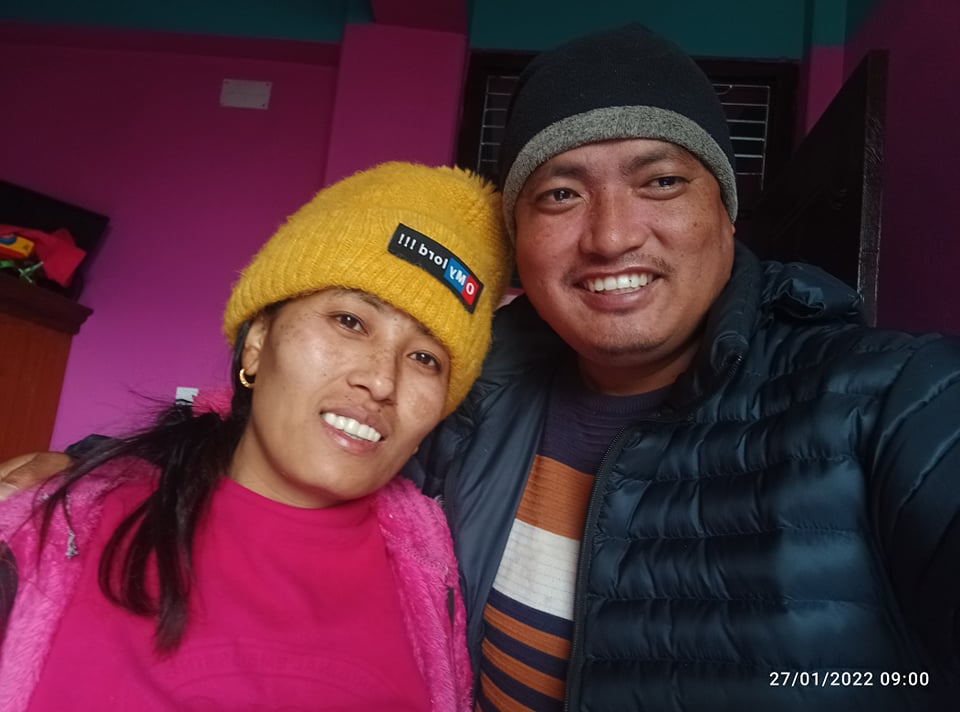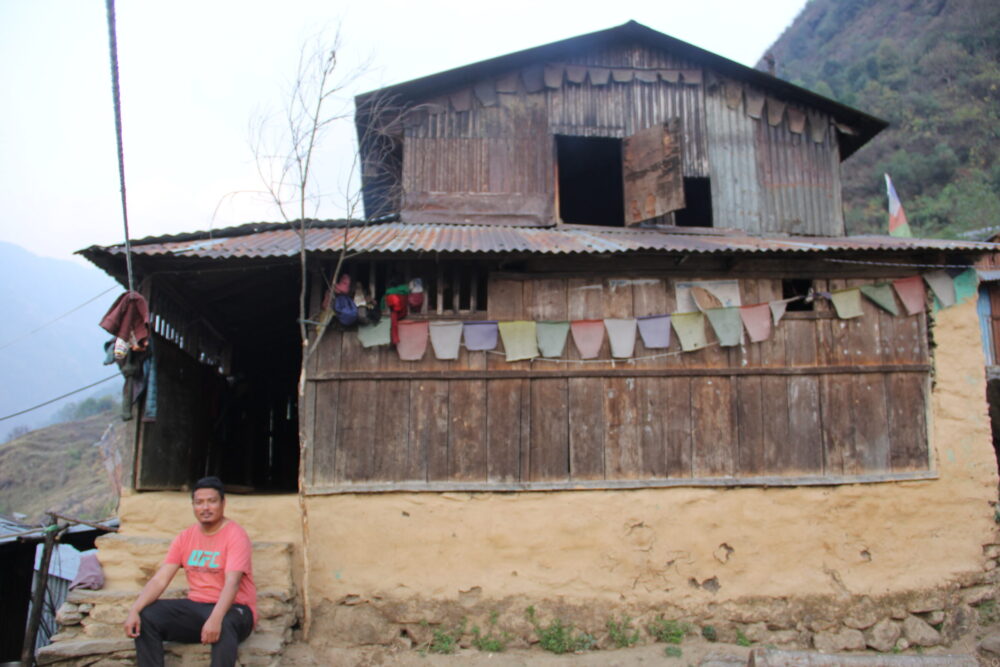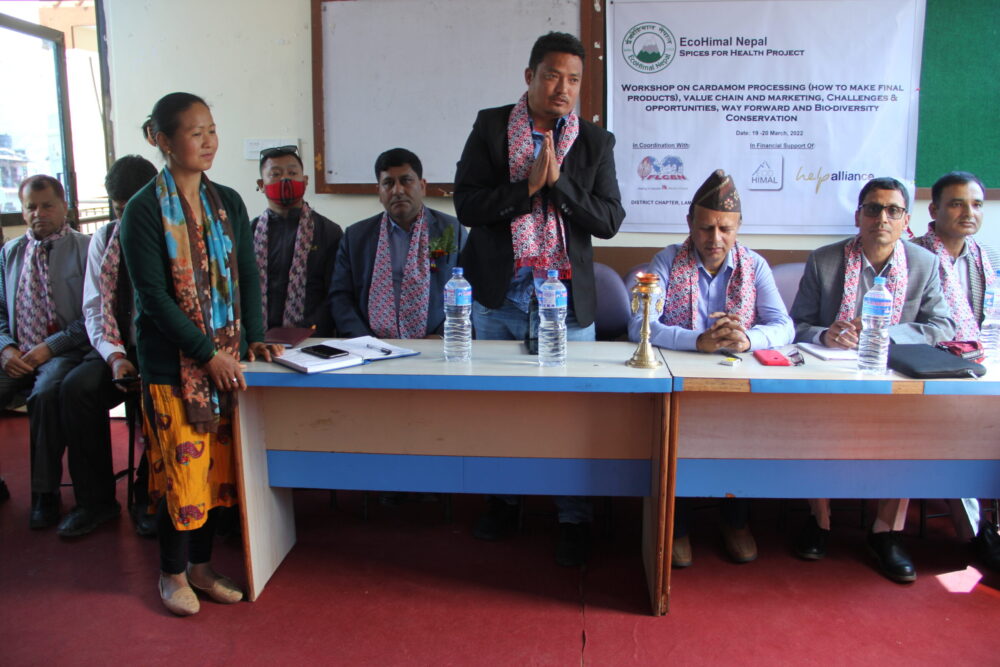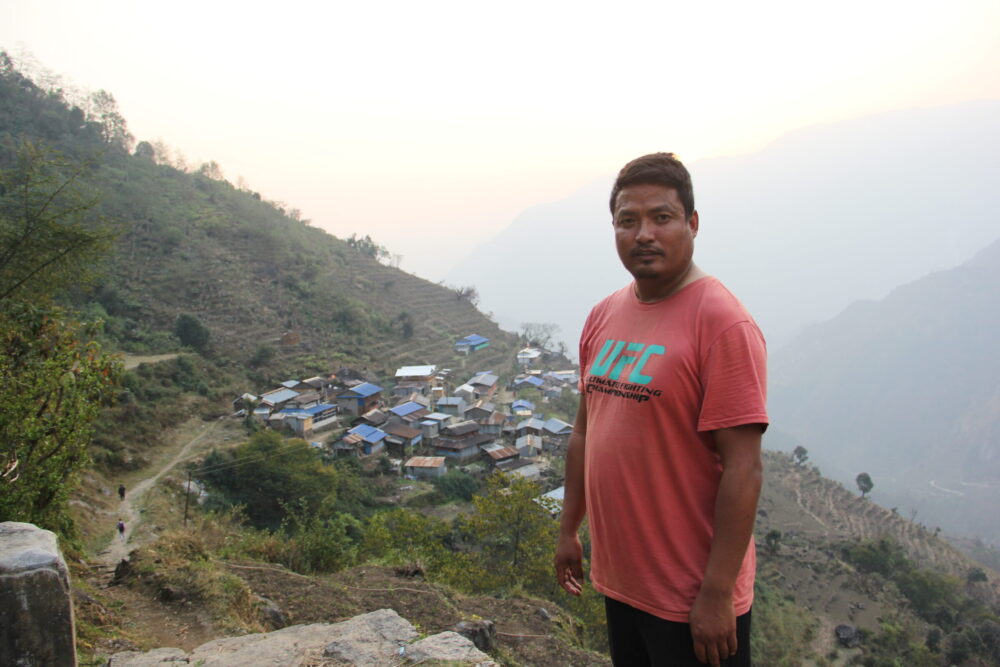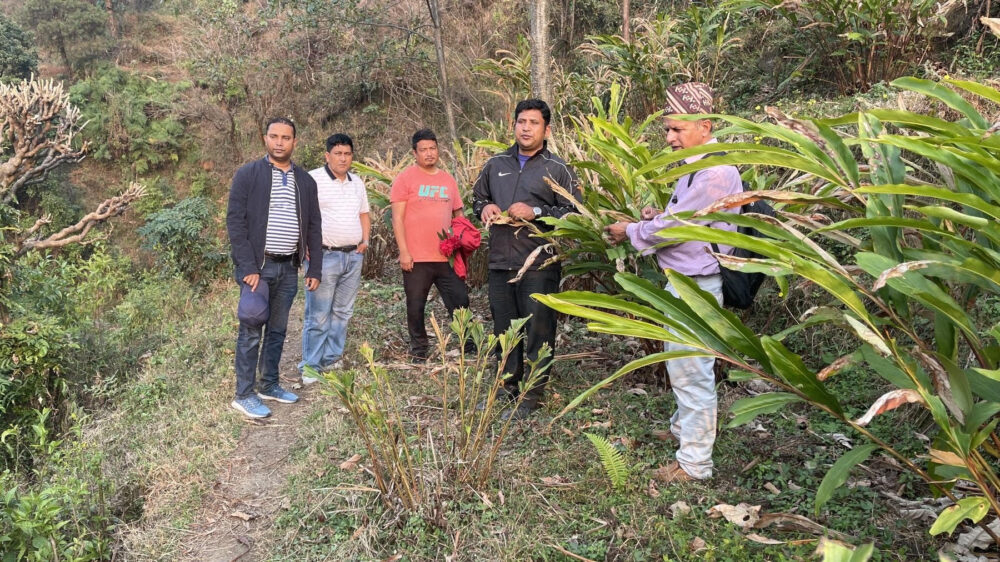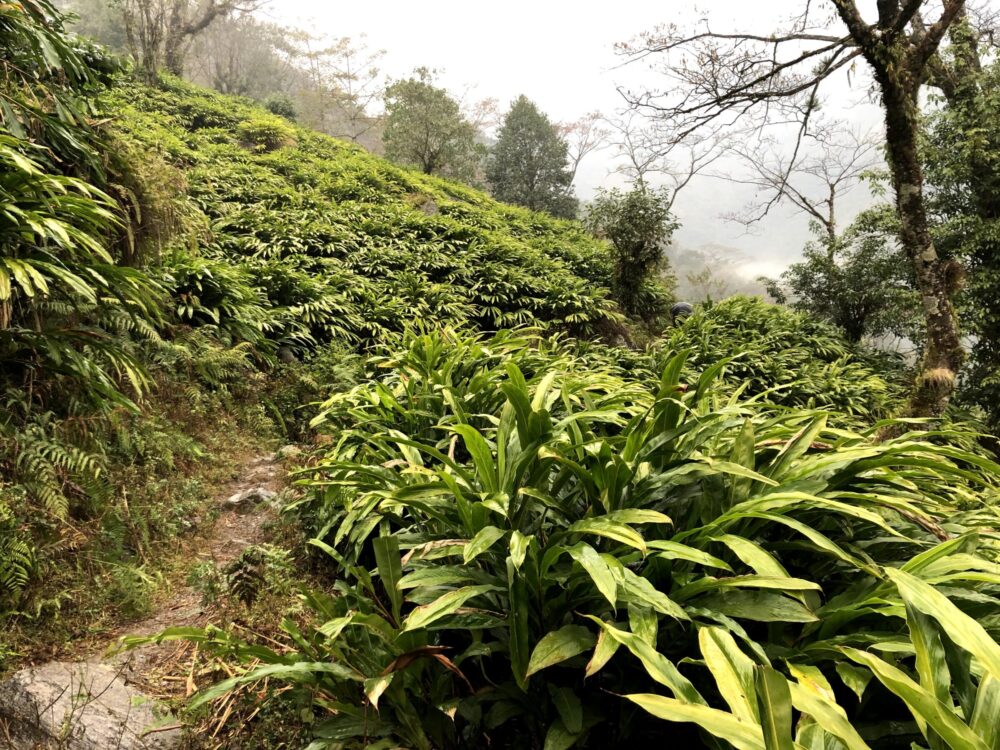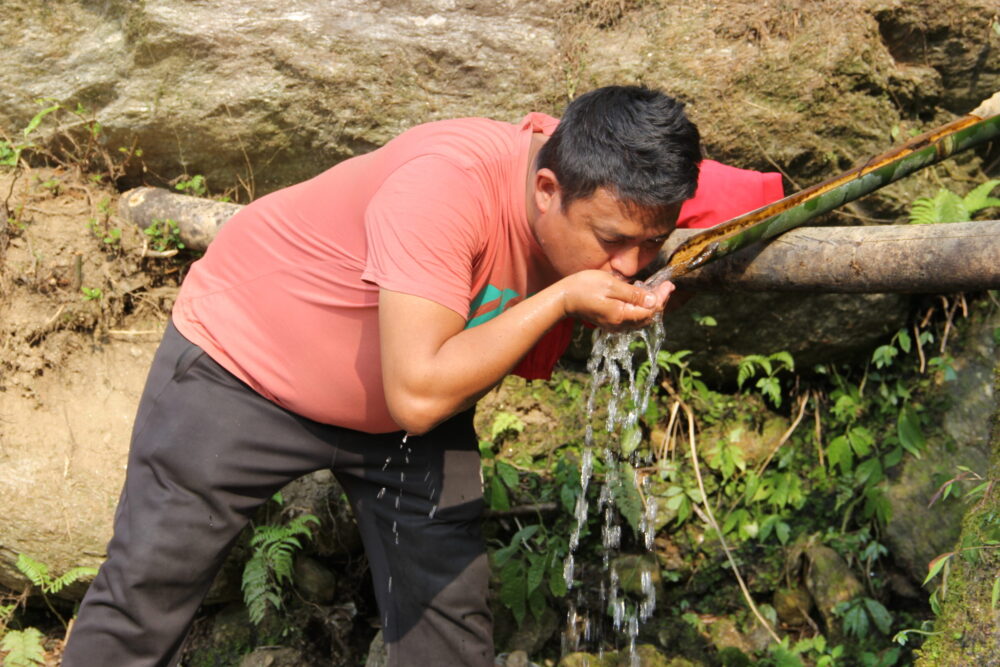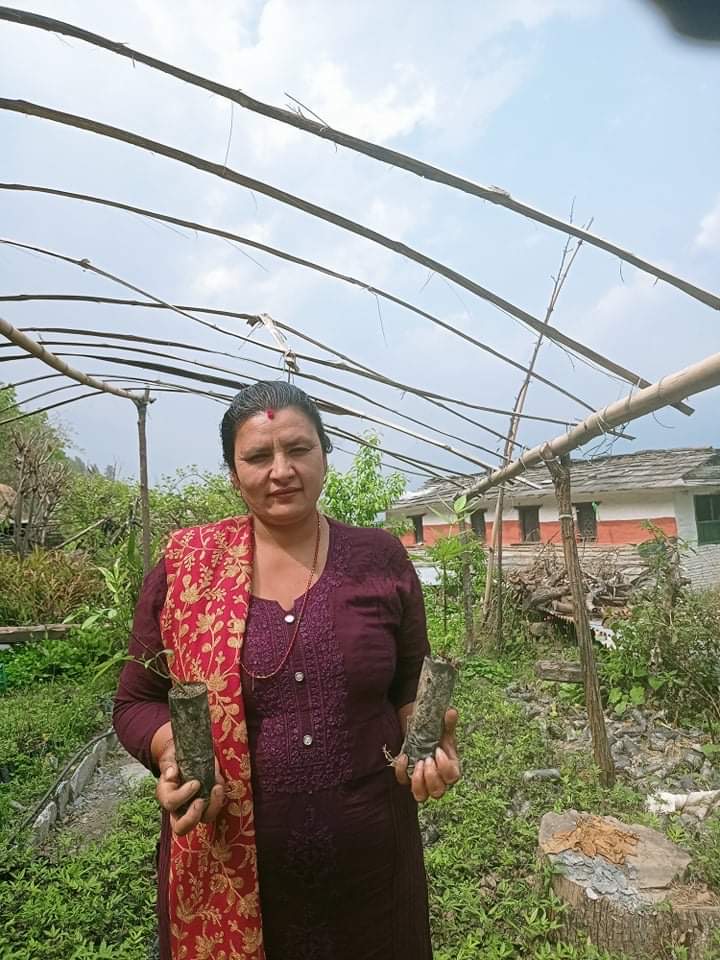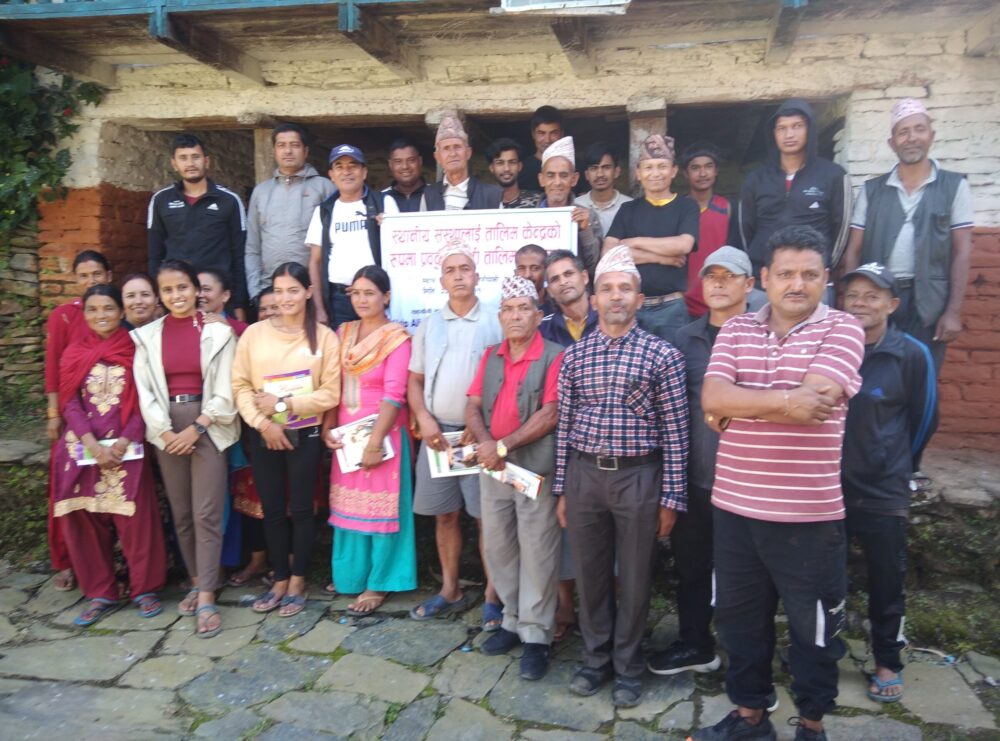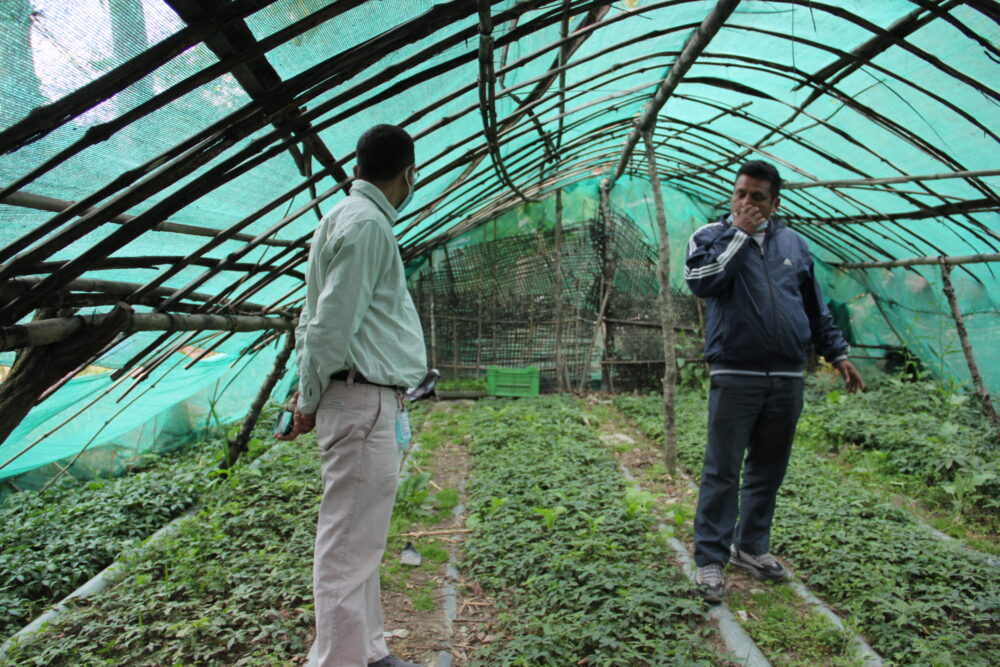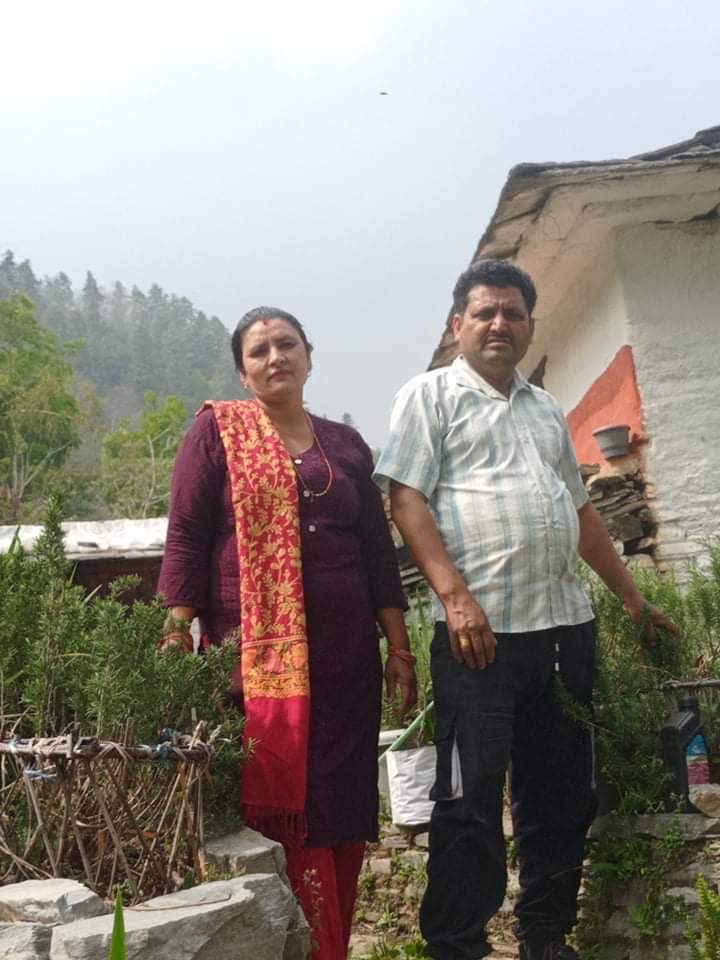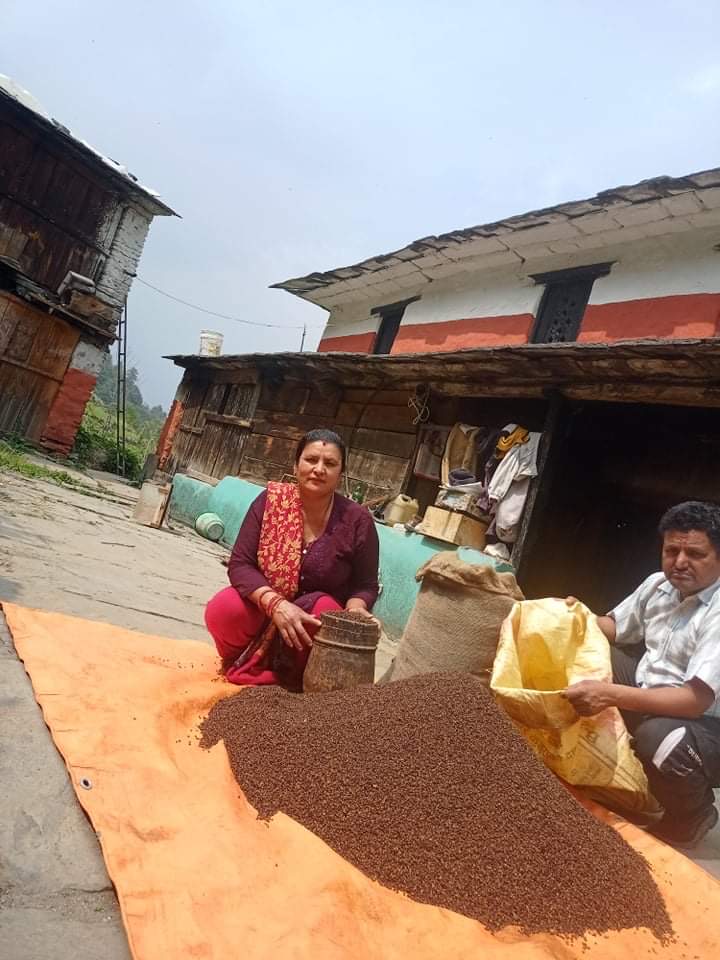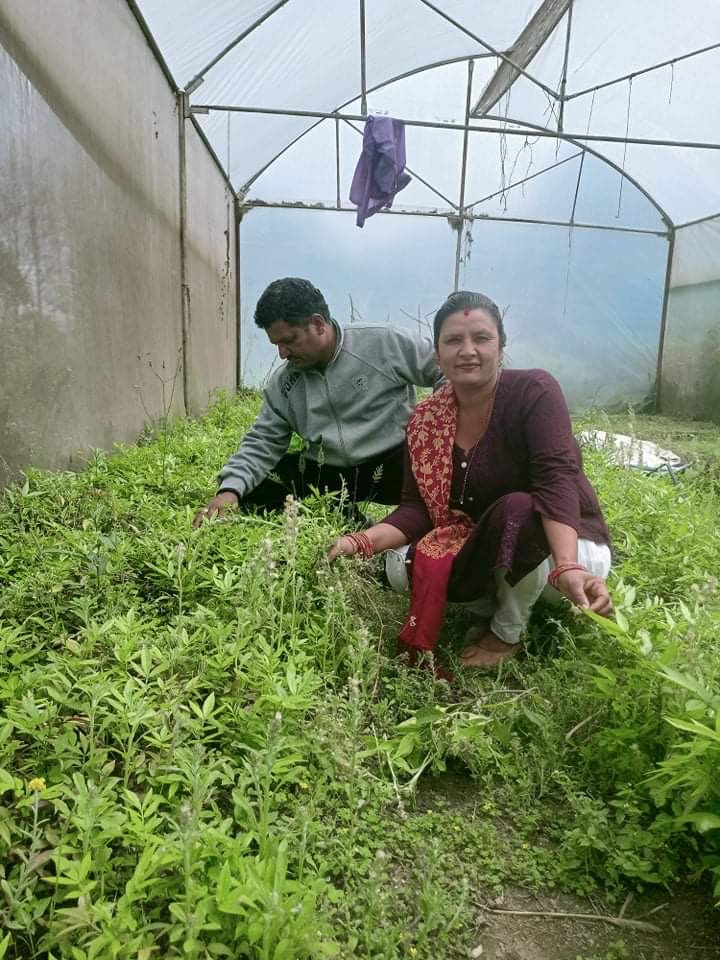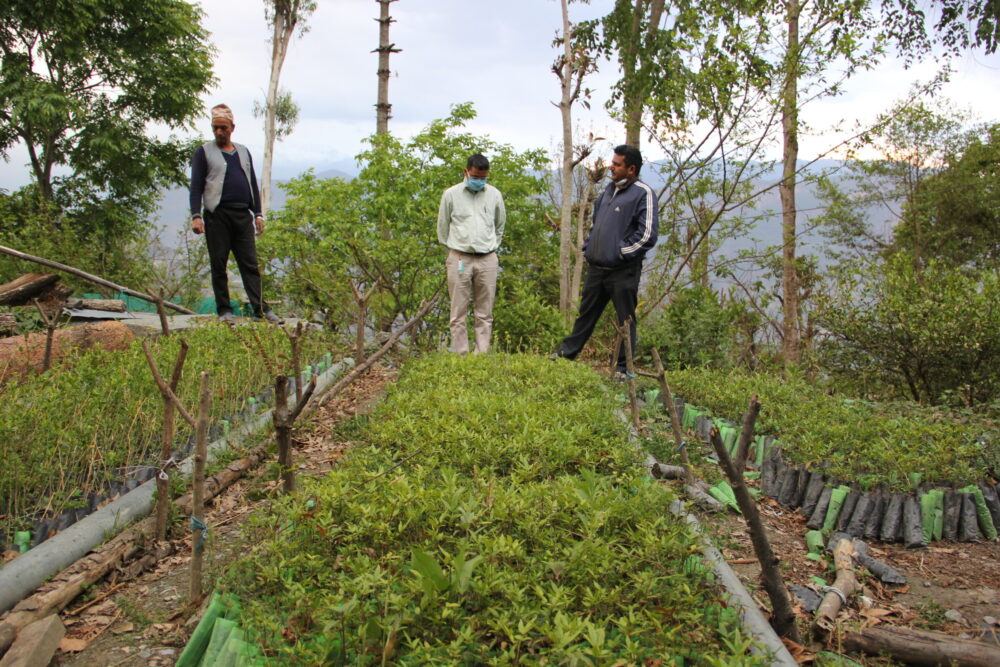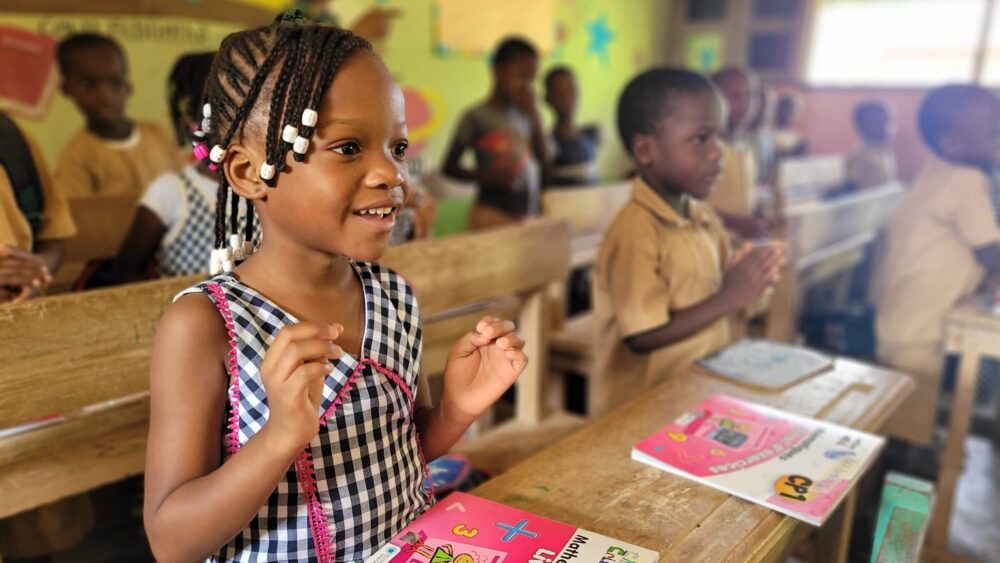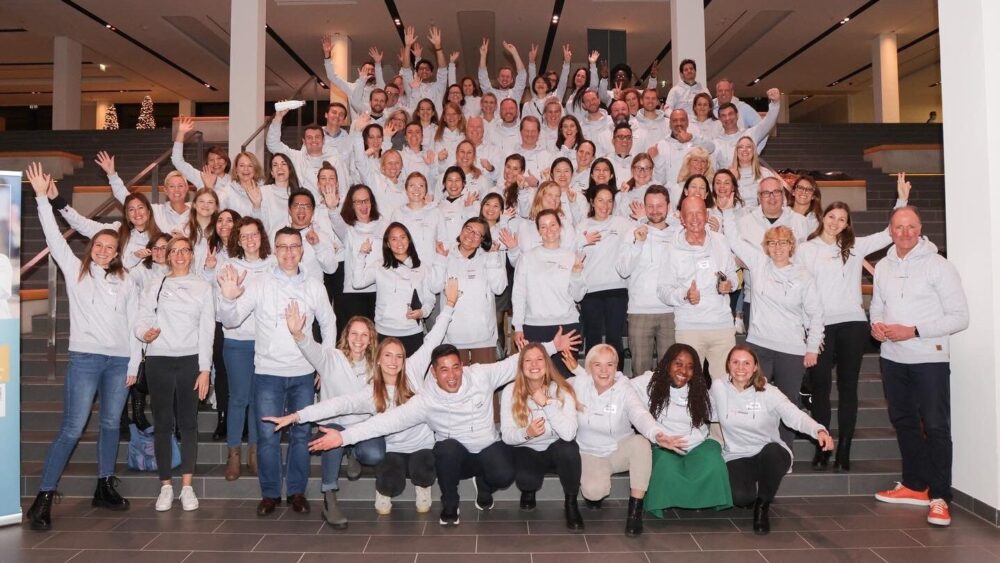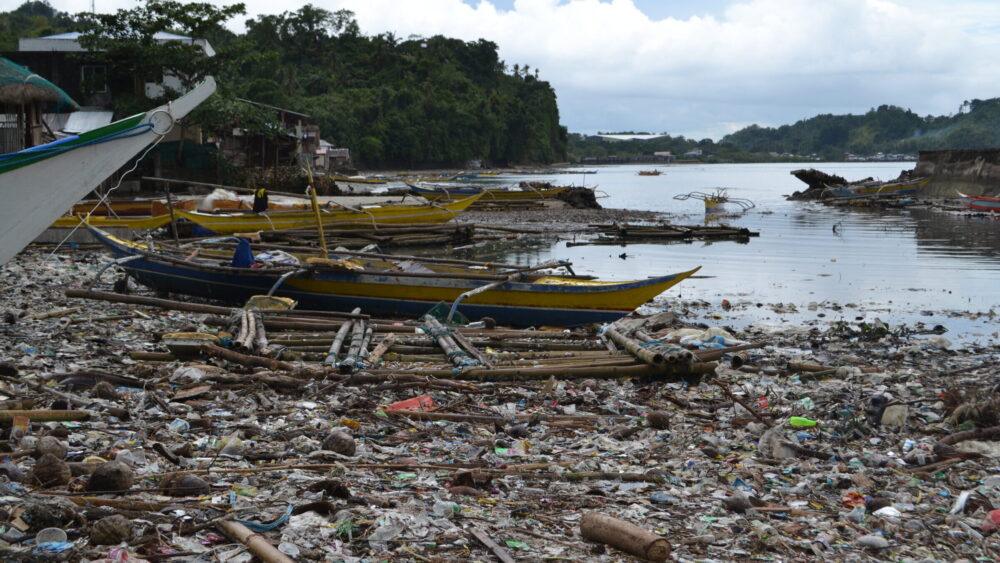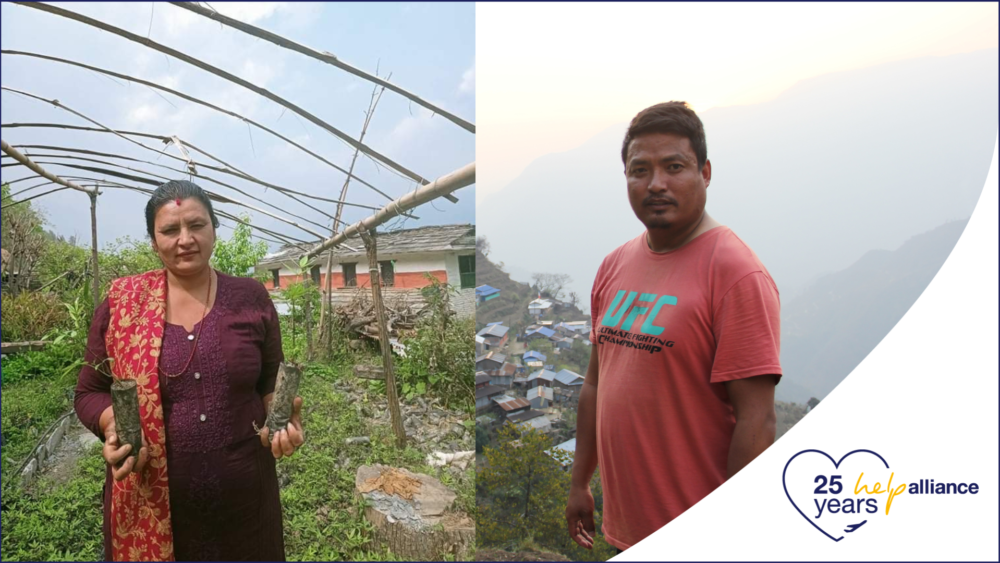
THE SPICE(S) OF LIFE
Sometimes it’s the little things that, on closer inspection and in due course, reveal their full potential. Many people in Germany would find it hard to imagine that growing spices such as cardamom or Szechuan pepper and selling them for a reasonable price can positively change a whole family’s lives. Nepalese farmer Ajay Tamang was similarly skeptical when help alliance partner organization EcoHimal tried to convince him in 2014 to get into cultivating spices.
At the time, Ajay Tamang was one of the many subsistence farmers in the Nepalese highlands who grow cereal crops that barely provide an income for themselves and their families. The little money Ajay earned was hardly enough to send his children to a good school, and he was already considering trying his luck in the Gulf states, like many of his compatriots.
After some initial skepticism, Ajay decided to become a model farmer for the ‘Spices 4 Health Project’ that help alliance was promoting. He and fellow farmers were given technical guidance and encouraged to expand the cultivation of cardamom on their land. The project imparted knowledge and skills on preparing the soil, cultivation, producing seedlings, planting, weeding, harvesting, drying, quality improvement, grading and
storage, and provided vital access to fair sales markets. To date, the cultivation of cardamom has been expanded from 100 to 1,000 hectares, and previously barren land has been transformed into cardamom orchards.
The actions taken have not only significantly increased the quality of the cardamom grown: they have also ensured that the farmers receive a fair price for their product. And this in turn has had a positive impact
on the quality of life for Ajay and the region’s other spice farmers.
“I’m now a successful entrepreneur. My children go to the best private school in town. And we farmers are now competent and more confident. Even the local banks have a lot of confidence in our cardamom plantations, and grant us loans on the strength of our annual production.”
Ajay says, full of pride in what the project has done for him over the past six years
It’s a similar story for Saraswoti Baniya and her husband Surya Prakash Baniya, who have become model farmers in the Myagdi district by improving their methods of harvesting Szechuan pepper. Today, they show other farmers in the region how simple methods can be used to increase the quality and the yields of their pepper trees to ensure sustainable livelihoods for their entire families.
Before they took part in the project run by help alliance partner organization EcoHimal, the Szechuan pepper farmers would traditionally harvest their crops by lopping off the entire branch containing the ripe pepper pods, and would not separate these from the stems, thorns, leaves and seeds. The approach not only reduced the quality of the harvested pepper to inadequate levels: it also meant that, as time went by, they were left with fewer and fewer pepper trees.
Thanks to their active involvement in the project, the farmers in Myagdi are now substantially more aware of the need to look after their pepper trees, the value of these and their market opportunities. The project also helped Saraswoti and her
husband appreciate the vital importance of maintaining quality and hygiene during and after the harvest. And they also received hands-on training in looking after their pepper trees, harvesting, drying, cleaning, manual sorting, packing and safe and secure storage.
To provide future generations, too, with the opportunity to make a living from the sustainable cultivation of Szechuan pepper, the cultivation areas have also been further expanded, and nurseries have been established to produce seedlings which are then sold to other spice farmers.
The project has significantly improved the standard of living for people in the Myagdi region. Saraswoti’s husband had been working abroad in the Gulf states, but has now returned home. When he came back to Myagdi in 2014, the Farming for Health Project had just begun. He had intended to return to the Gulf, where he had a well paid job. But when we was offered the opportunity to participate in a Farming for Health project to grow, harvest and market paprika, he changed his plans and decided to do something in his own country instead. His family, relatives and neighbors tried to dissuade him from staying in Nepal and starting up a paprika nursery that he would also be able to make a living from. It’s good he didn’t listen.
The Storys of Ajay and Saraswoti were first published in our annual report 2021.

